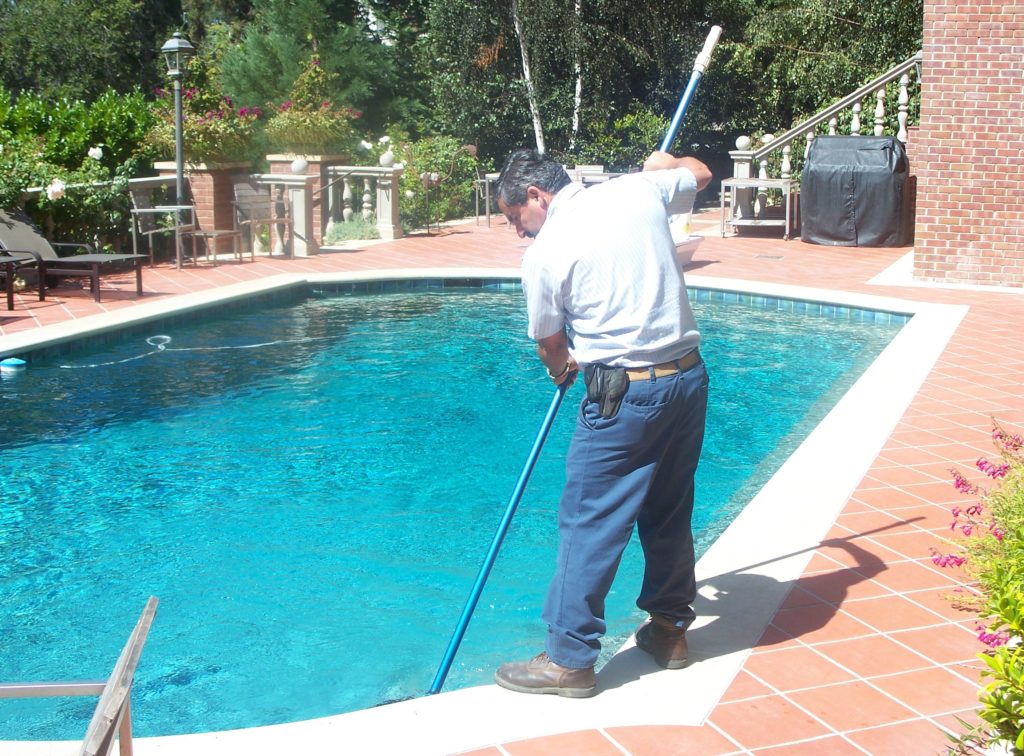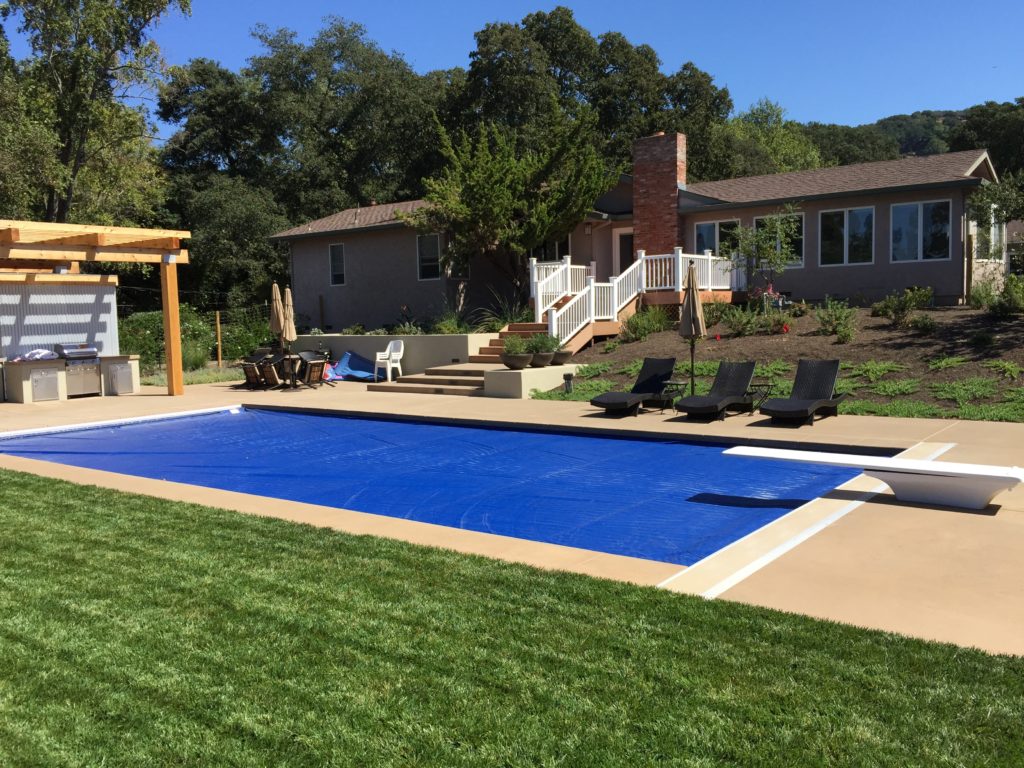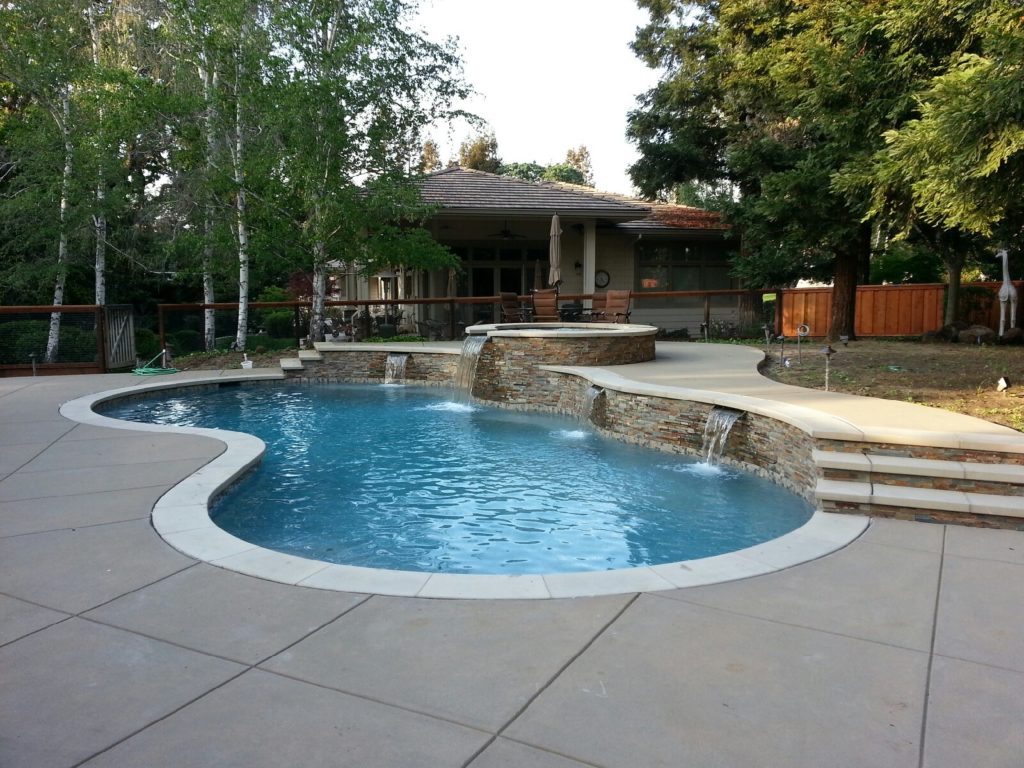
Even if you have a reliable pool technician, it’s good to know a few basics about pool maintenance. Photo: The Pool Doctor ©2022
If you own a swimming pool, chances are you work with a company that helps you maintain it. However, even if you have a reliable pool technician, it’s good to know a few basics about pool maintenance. Additionally, you may have questions about how to improve your swimming experience or lower the associated utility costs. Here are five things to ask your pool technician:
- How do I get my pool ready for summer?
After sitting dormant all winter, your pool will need some extra attention prior to summer use. While your pool technician can handle this, you can save money by handling some or all aspects yourself. The simplest thing you can do is clean it. In addition to removing leaves and debris with a skimmer net, you should disassemble your pool’s filter and wash off the individual components with a garden hose. Just make sure you know how to reassemble them!
Another thing you can do is adjust your pool’s chemicals. Have the water tested (you can take a sample into your local pool supply store) and add the requisite amount of chemicals. Aim for a pH balance of between 7.2 and 7.4, and a chlorine-to-water ratio of between 1.5 and 3 parts per million (ppm). Ask your pool technician to double-check your pool’s chemical levels and make any necessary adjustments.
- How can I reduce my pool’s energy consumption?
On average, homes with swimming pools use 50 percent more electricity than those without. Fortunately, with the right measures, owning a pool doesn’t have to cost an arm and a leg. One such measure is to replace your old, single-speed pool pump with a variable-speed model. Rather than pumping at full speed all day, variable speed pumps are able to adjust their speed depending on what’s needed, which can save a lot of energy. Ask your pool technician what further measures you can take to lower your swimming pool utility costs.

Swimming pools aren’t cheap to maintain, but a savvy homeowner can cut costs by implementing the right measures. Photo: Classic Pools ©2022
- Do I have to use chlorine to sanitize my pool?
Due to the harsh character of chlorine, many pool owners are interested in alternative methods of sanitation. There are several options available, including bromine, ozone and ionizers—however, most of them still require some chlorine to supplement them. One of the better options is salt chlorination, an alternative method of generating chlorine that reduces its harsh effects. Ask your pool technician for more information on chlorine alternatives and how to implement them in your pool.
- Does my pool have a leak?
Pool leaks can be hard to identify, especially if they’re slow. Fortunately, there’s an easy test you can conduct:
- Partially fill a bucket with pool water and place it on your pool’s top step. Try to get the water level in the bucket as close as possible to the pool’s water level.
- Use a marker to mark the water level inside the bucket, followed by the level of the water outside of the bucket.
- After a few days, check the bucket. If the water level in the pool is substantially lower than the water level in the bucket, you might have a leak.
- Inform your pool technician about your findings and ask them to perform more in-depth diagnostic tests if needed.

In addition to maintaining your pool during summer, you’ll need to plan for winter maintenance. Photo: Classic Pools ©2022
- Does my pool need maintenance during winter?
Many pool owners ignore their pools during winter, but this isn’t a good idea. Without ongoing supervision, a swimming pool can develop all sorts of problems, from leaks to algae buildup. Likewise, draining your pool each winter can potentially lead to major structural issues. A better option is to keep your pool clean and its chemicals balanced through the off-season. Ask your pool technician what level of service they recommend for maintaining your pool during winter.
